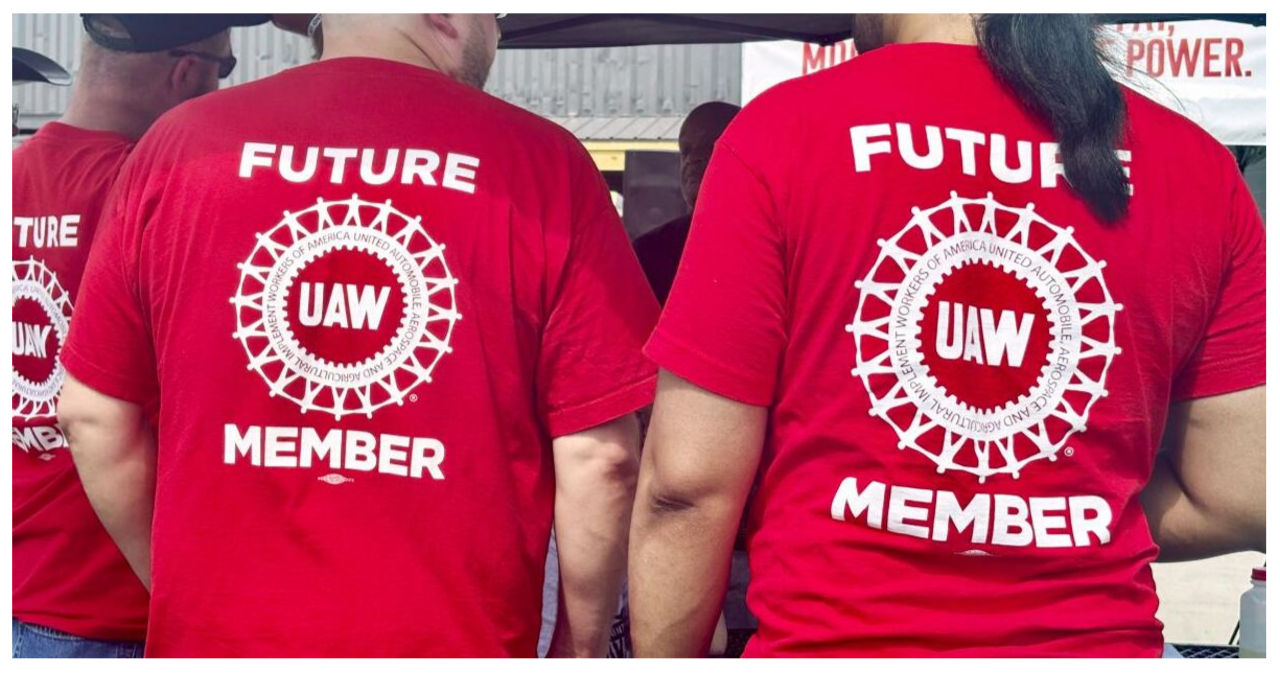The United Auto Workers union is currently being put to the test as it seeks to expand its reach into the traditionally nonunion South. The union is awaiting the results of a vote that concludes on Friday at two Mercedes-Benz factories located in Tuscaloosa, Alabama.
The UAW’s recent triumph at the Volkswagen factory in Chattanooga, Tennessee, has set the stage for another significant vote at two Mercedes factories. These factories, one dedicated to assembly and the other to battery production, will determine whether their workers will join the UAW. The VW victory has undoubtedly influenced the workers’ decision, as they witnessed the benefits of higher wages and improved benefits that come with union membership.
The UAW struggled to attract workers at nonunion auto plants in the South, where organized labor has historically had less appeal compared to the traditional union strongholds of Michigan and other industrial Midwest states.
Winning at the Mercedes plants would be a major achievement for the union. They have faced challenges in countering the attractive incentives offered by Southern states to foreign automakers. These incentives include tax breaks, lower labor costs, and a workforce that is not unionized.
Southern governors have issued warnings that voting for union membership could potentially result in job losses for workers. They argue that the increased costs that auto companies would have to bear might lead to this outcome.
The UAW is in a stronger position than before, with recent victories in Chattanooga and successful strikes against Detroit Big 3 automakers – General Motors, Stellantis, and Ford. These achievements led to generous new contracts that include a significant 33% pay raise for workers. These contracts are set to expire in 2028.
Top-scale production workers at GM, currently earning approximately $36 per hour, will see their wages rise to nearly $43 per hour by the end of their contract. In addition, they will receive annual profit-sharing checks. Mercedes, on the other hand, has raised the pay for their top production workers to $34 per hour, a strategic move aimed at warding off the UAW, according to some workers.
UAW President Shawn Fain wasted no time after workers approved the Detroit contract. He swiftly launched a campaign to organize approximately 150,000 employees at over a dozen nonunion plants, primarily owned by foreign automakers operating in Southern states. Furthermore, the UAW has set its sights on Tesla’s nonunion factories in the United States.
Approximately 5,200 employees at the Mercedes plants have the opportunity to vote on the UAW, marking the union’s inaugural election at the company. The National Labor Relations Board is overseeing the balloting process.
The union might face more challenges in Alabama compared to Tennessee, where the UAW had previously come close to winning two votes and had established relationships with the factory workers. The UAW has alleged that Mercedes has been utilizing management and anti-union consultants to intimidate the workers.
Mercedes has denied any involvement in impeding or seeking retribution against employees who are seeking union representation. The company has expressed its commitment to ensuring that all workers have the opportunity to vote confidentially and access the necessary information to make an informed decision regarding unionization.
According to Marick Masters, a professor emeritus at Wayne State University’s business school who has extensively researched the union, a victory for the union would serve as a significant momentum boost for the UAW in its efforts to organize additional factories.
According to Masters, the UAW will soon be making their presence known to other companies more forcefully than ever before.
If the Mercedes workers refuse the union, Masters anticipates that the UAW leadership will consider legal avenues. This may involve presenting a case to the National Labor Relations Board, contending that Mercedes’ actions hindered a fair election for union representation.
While a loss would certainly be a setback for the UAW, Masters indicated that it wouldn’t be a fatal blow to their membership drive. According to Masters, the union would need to assess why it failed to secure more than 50% of the vote, especially considering their claim that a “supermajority” of workers had signed cards authorizing the election. The UAW has not disclosed the specific percentage or number of workers who signed up.
According to Masters, if the UAW were to lose, it might cause workers at other nonunion factories to question why the employees at Mercedes voted against unionizing. However, he believes that a defeat in the election would not hinder the union’s progress.
“I anticipate that they will increase their efforts and strive to be more reflective in order to understand what went awry,” he expressed.
If the UAW succeeds in organizing nonunion plants at Hyundai, Kia, Nissan, Toyota, and Honda, and secures contracts similar to those it won in Detroit, it could result in other automakers facing the same labor costs. This, in turn, may lead to an increase in vehicle prices.
According to some employees at Mercedes, they claim that the company mistreated them until the UAW’s organizing drive began. However, once the drive started, the company suddenly offered pay raises, got rid of a lower tier of pay for new hires, and even replaced the plant CEO.
Some Mercedes employees have expressed their preference for observing how the company treats them without the involvement of a union, as stated by other workers.



